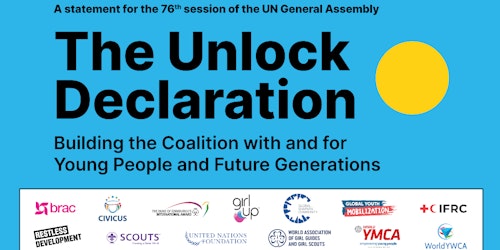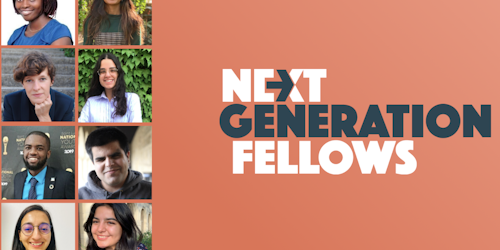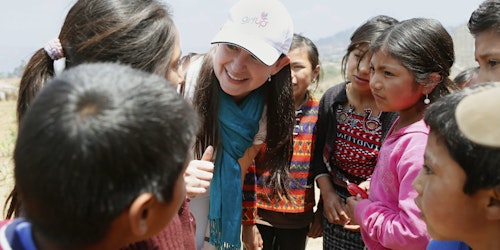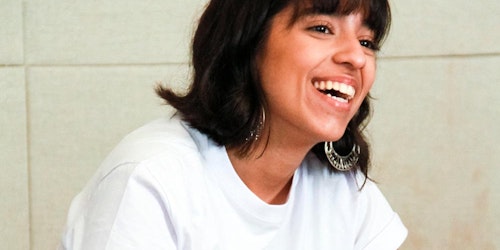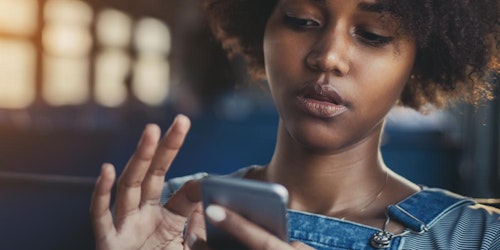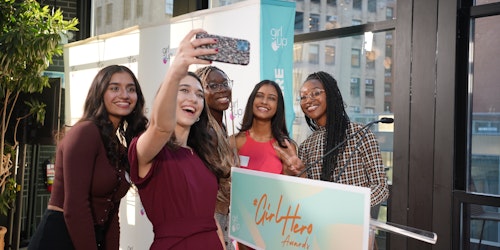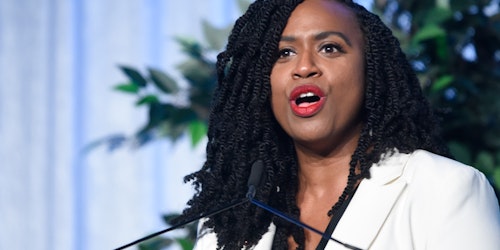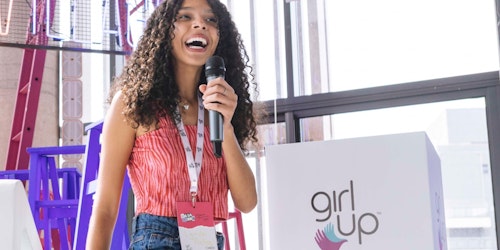As part of its celebration of International Day of the Girl, the United Nations Foundation is working with partners to spotlight issues affecting the world’s girls, and what girls want from the world. Reflecting on these themes and so much more, Michelle Milford Morse, our Vice President for Girls and Women Strategy, met with Rocío Mejía, a Girl Up leader and 17-year-old high school student who is dedicated to advancing girls’ rights and opportunities, speaking up against gender inequality and violence, and supporting positive disruption of the fashion and media industries, too.
Michelle Milford Morse: Rocío, tell me how you became an activist and leader for girls’ rights. Which issues are most critical to girls becoming #EqualEverywhere, and why?
Rocío Mejía: Everything started when my sister taught me how to stand up for what my heart tells me to. It was then that I realized the reality of life for women in Mexico did not align with my beliefs. I’d watch the news and see nothing but cases of sexual violence against girls, inequality of opportunities, homicide. My heart would literally tremble in fear because those things happen every day, but no one does anything about it.
I figured that by staying silent I would become an accomplice, so I had to speak up for the women who don‘t have a voice anymore and elevate those voices that have been crying in silence for so long. Maybe I don‘t have enough power to change how things are in Mexico by myself, but I do believe, and it has been proven many times, that when women come together, we can move seas and make the earth tremble.
The thought of women being so powerful has been my biggest motivation. I’ve seen that power in my sister and my mother, grandmother, and my aunts and all the women who live with me. I look up to them constantly.
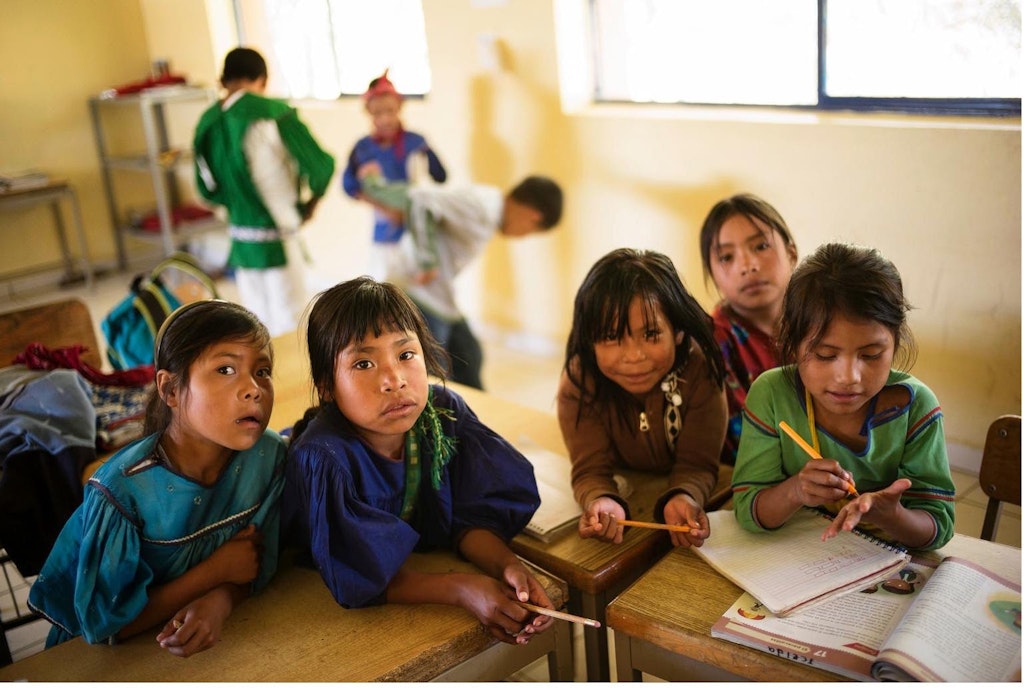
MMM: You come from an inspiring line of women, Rocío! Which issues that affect adolescent girls are most important to you?
RM: Definitely gender-based violence and reproductive rights. Sometimes it feels like girls are preyed upon in Mexico. That‘s the easiest way to put it, because we‘re constantly demanding to be respected. If we don’t, then no one will listen to us. Every time we go out, we pray that we will come back home. Girls have to stop wearing short skirts and the clothes that they like for fear of being catcalled or even worse.
But also, from fear, braveness is born. Women have had to teach themselves how to protect themselves. And sadly, girls have had to grow up quicker to learn how to prevent these types of situations. We don’t feel protected by the police at all and sadly, many don‘t feel protected, even by their families. So, we have to basically protect each other. And I feel like this is the reality for many girls in many parts of the world, you know, to have to lose their innocence to be ready to go out into the world. I would like girls to grow in a healthy environment where they can be girls and they don’t have to worry about those types of situations. Because they deserve to dream and to grow and bloom in the right time.
MMM: As you know, International Day of the Girl is an important moment for us to assess the current state of the world’s adolescent girls. Rocío, you’ve given us a sense for what life is like for girls in your community. How do you think your experiences resonate with girls in other parts of the world?
RM: I feel like some situations that I‘ve mentioned are replicated in other parts of the world. I have friends from different countries, and we can all agree that one of the worst fears of girls right now is to be catcalled on the street for wearing clothes that you like or feeling like you don‘t deserve to be in leadership positions. Even though we‘re in the 21st century, I feel that having women in leadership positions is still not very normal to see. It‘s still very new. We all want to become leaders, but sometimes we feel like due to all this ideology that we‘ve been carrying within ourselves for our whole lives, maybe we’re not enough to do that. I feel like even if I talk to someone very far away, we can both agree about those two specific situations.
MMM: Earlier this year, the Generation Equality Forum was convened by UN Women, and co-hosted by the Governments of Mexico — your government — and France to bring together youth leaders, civil society activists, countries, companies, and philanthropists to make gender equality a reality. More than $40 billion in investments was promised through about 1,000 different policy, programmatic, and advocacy commitments. How do you want to see this worldwide momentum channeled to change the lived experiences of girls?
RM: I’d love to see more money invested in education for girls, because education is definitely the key to everything in life. But, according to UNICEF [the United Nations Children’s Fund], approximately 129 million girls do not have access to education. That’s so disturbing, and it’s something that we should all care about. When girls, and children in general, have equal educational opportunities, we can start talking about bigger opportunities like leadership, activism, and teaching girls how to stand up for themselves. It’s like a chain reaction. Everything starts with education. Once we all have equal educational opportunities, we can start doing greater things together.
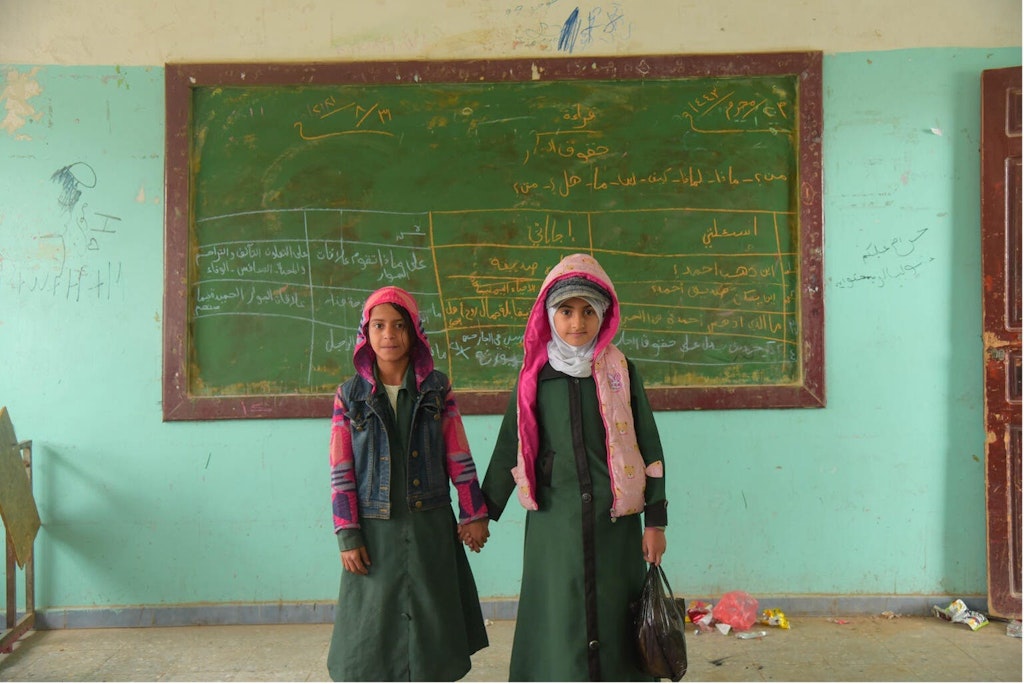
MMM: Rocío, in addition to being a gender equality advocate, you are an advocate for sustainable fashion. Tell me about your interest in sustainable fashion and how unsustainable fashion has an impact on girls. Why do you think it’s important that the world pays attention?
RM: In the countries where fashion garments are mostly made a great majority of the factory workers are women in economically and socially vulnerable circumstances. The lack of labor rights, the precarious work environments, and unethical practices by the employers are no secret to the global community. Yet society continues to support this unethical and unequal business model. This affects girls, because they grow up thinking that they have to become what their mothers are. That they have to work in garment factories because they have no other choice. They have their dreams ripped from them, and they don’t have the opportunity to explore what they want or what their heart tells them to do.
So, the world needs to pressure these big companies to change their production system. We can’t just cancel them — many people on the Internet say, “stop buying fast fashion.” But we can’t do that because we all need clothing every day, and these factories are sometimes the only form of income that people have for their families. Even if it‘s very low [pay], that’s everything that they have. We can’t take that away from them. We can’t just stop giving them jobs. Instead, we need to rethink the way that fast fashion factories work and ensure factory workers are paid the amount that they deserve and that they work under good conditions.
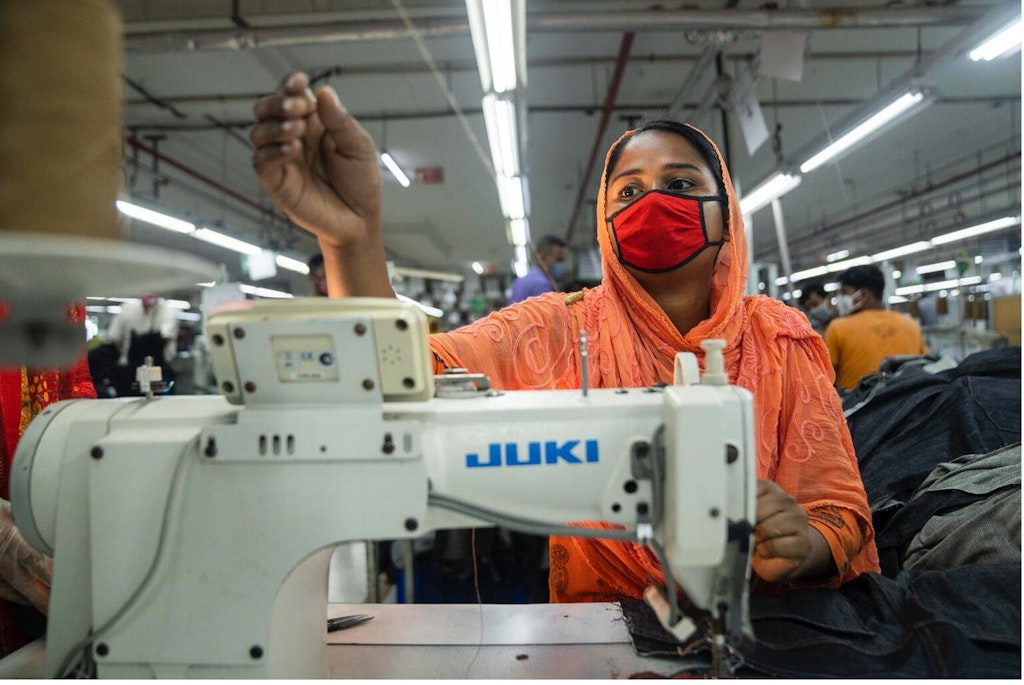
I know that it sounds sometimes impossible. But I think of it this way: If human beings figured out a way to go to the moon, we can definitely handle this. This is a system that human beings built. If we built it, we can learn how to change it. I want fashion to be a safe space, not only for me as a consumer but also for the people who produce it.
MMM: You’ve just given voice to the power and the glory of global solidarity for the world’s women! I have one more question for you. Let’s imagine a world where gender equality is achieved and girls’ rights are fully realized. What does that vision look like not just for girls, but also for the world? And what do we need to do to get there?
RM: If women thrive, the world thrives, too. Because we are the beginning of life, it blooms inside us. And I don’t only mean babies and reproduction, but also innovation and leadership. Women are change-makers by nature, because we create, we imagine, we build, and we have a different vision compared to men. We definitely need more of a female perspective in workplaces and in governments. If men have not been able to change the world in the way that we need it to change, maybe it‘s time to give women the opportunity to lead the change and prove to the world what we already know we can do. Women are definitely the future, and if we‘re not investing in our future by letting women have leadership positions, go to school, and have the opportunity to dream, then we’re doomed. We need to change the way the world is built right now, but how are we going to change it if we just keep having the same perspective? Women are already used to doing the hard work and the feeling of having to prove ourselves. I feel like those experiences could bring a lot to the table to make the conversation and our world more diverse.
MMM: The world’s challenges are too big to keep half of us on the sidelines, right?
RM: I definitely agree.
